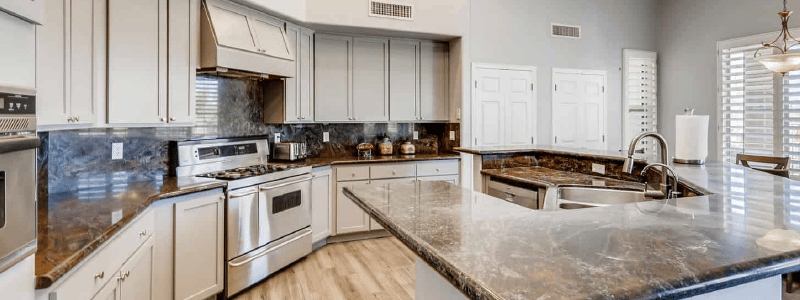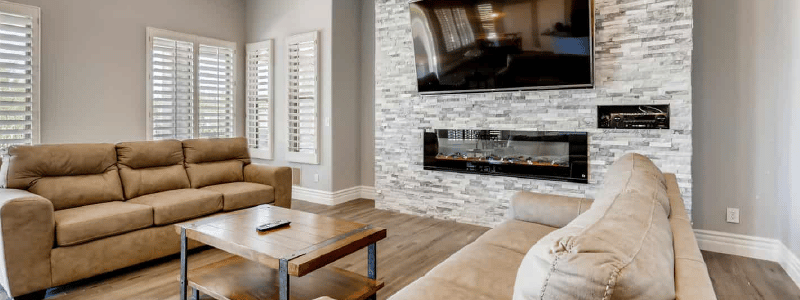Inpatient Drug and Alcohol Guide to Rehab
Before checking into rehab, it’s important to understand what it is and all that it entails. This page provides a closer look at our different treatment programs and answers to other questions you may have. This way, you can be well informed when deciding whether inpatient, outpatient, or partial hospitalization is right for you or your loved one.
- What is an inpatient drug rehab treatment program?
- What is the average time spent in rehab?
- What type of drug rehabilitation programs are there?
- How do you find a good rehab center?
- Medical Detox
- Partial Hospitalization Program (PHP)
- Inpatient Rehab
- Full Continuum of Care
- Other treatment options
- Luxury inpatient drug and alcohol program
- Addiction treatment statistics and studies
- FAQs/What questions to ask rehabs centers
What is an Inpatient Drug Rehab Treatment Program?
An inpatient drug rehab treatment program requires you to live on-site at the facility for the duration of your treatment. This provides you with an opportunity to safely detox, receive the appropriate therapy and medical assistance, and learn coping mechanisms in an environment free of relapse triggers and distractions from your recovery goals.

What is the Average Time Spent in Rehab?
Typically, patients will check into rehab for a 30, 60, or 90-day program, but everyone’s circumstances vary, and there’s no specific formula. Some patients may stay longer than they originally planned to, while others may stay for a shorter time; it all depends on their progress as an individual.
What Type of Drug Rehabilitation Programs are There?
Various drug rehabilitation programs cater to the diverse needs and circumstances of individuals. Generally, drug rehab programs consist of the following:
- Inpatient Treatment
- Outpatient Treatment
- Intensive Outpatient Treatment
- Dual Diagnosis Treatment
At Fountain Hills Recovery, we offer these drug rehabilitation programs as in-depth treatment plans. Each plan aims to get our patients clean and on the path to recovery. We offer multiple options so we can cater to each of our patient’s personal needs and life circumstances.
Partial Hospitalization Treatment
Patients who participate in our partial hospitalization program stay at one of our luxury residence locations to receive full-time residential treatment. This intensive treatment program is designed to address the specific substance abuse that patients struggle with and any mental health disorders accompanying the addiction.
Outpatient Treatment
Our outpatient program offers a more flexible recovery that allows you to continue living at home during your recovery. The program is designed to make a recovery possible with minimal impact on your daily responsibilities. It offers leeway if you cannot commit to several weeks off from work, school, and family responsibilities.
Intensive Outpatient Treatment
The intensive outpatient program requires more time commitment than outpatient treatment and is best for those who need more attention with their recovery but cannot commit to living on-site. It allows you to attend intensive treatment while continuing with outside responsibilities such as work, school, and family life.
Dual Diagnosis Treatment
The dual diagnosis treatment works to identify the co-occurring mental health conditions playing a role in your addiction. Whether it’s depression, anxiety, or PTSD, we help you find the underlying cause of your health conditions so you can develop techniques to cope with your symptoms and recover from addiction.
As you speak with our medical team, we can help to figure out which treatment plan is best for your situation.

How to Find a Good Rehab Center
When searching for a good rehabilitation center, look for places that fit these five standards:
- Reputable
A good rehab center will have a reputation for success. This means qualified staff with the proper training and certifications and no consistent history of poor quality or treatment. It’s important to know who you’re working with, especially when trusting an organization with your health.
- Established
While every rehab organization needs to begin somewhere, it’s good to look for one that has at least 5+ years of experience. Look for rehabs that have a reputation for a specific treatment service, such as vocational rehab, physical therapy, or in Fountain Hill’s case, alcohol, and drug addiction. This shows that they’ve narrowed their craft and know their organization’s internal goals and purpose.
- Offers treatment for your specific addiction
It’s important to make sure the rehabs you’re researching offer programs for your specific treatment needs. For example, not all drug addiction rehabs offer programs for opioid addiction. Finding a center that not only supports your specific recovery needs but also has a good reputation and established background is necessary.
- Variety of insurance and payment options
Finding a rehab that takes your insurance or offers other payment options is important since attending any addiction program is an investment for your overall health. At Fountain Hills Recovery, you can verify your insurance beforehand or use our private pay option.
Medical Detox
Medical detox is the first step in addiction recovery. When you go through medical detox, your body gets rid of the addictive substance under the supervision of a medical team. Medical detox is recommended if you’re at risk of withdrawal symptoms or relapse during detox.
Partial Hospitalization Program (PHP)
The partial hospitalization program is an intensive treatment plan that, like the inpatient program, has you living at one of Fountain Hill’s luxury residences full-time. In particular, the partial hospitalization program addresses substance abuse and mental health disorders individually.

Inpatient Rehab
Fountain Hill’s inpatient program includes personalized assessments and care, sub-acute detoxing, and evidence-based and experiential therapies.
Personalized Assessment
Your personalized assessment and individual care allow us to create an experience tailored to your specific needs, triggers, and medical situation and help us get to know you better and figure out what works best.
Sub-acute Detox
You’ll go through a medical detox with supervision to assist with any withdrawal symptoms.
Evidence-Based and Experiential Therapies
Lastly, you’ll be in good hands with our team of top medical experts. At Fountain Hills, we offer an array of therapies, including Cognitive Behavioral Therapy (CBT), Functional Family Therapy, and Trauma therapy.
Full Continuum of Care
At Fountain Hills Recovery, we believe that recovery takes more than just one detox. Recovery is a lifelong commitment to sobriety and using the tools and techniques you learn in treatment. We come alongside you and offer a thorough process and can provide permanent change if you’re willing to put in the hard work with us.
Detox
Detoxing isn’t the only measure in recovery, but it is crucial. When you first begin your treatment with Fountain Hills, you’ll go through a medical detox where our medical team will monitor you while you detox and help with any withdrawal symptoms you experience. Getting the substance out of your system is the initial step in becoming sober and gaining back the control addiction has over your life.
Inpatient 90 Days
During your detox, our inpatient residency will provide you with luxury amenities and various therapies catering to your individual needs. As a part of the entire continuum of care, the inpatient program gives you a break from daily responsibilities to focus on your recovery, learn techniques for overcoming relapse and prepare you to go back into the world with a fresh mentality and determination for recovery.
Intensive Outpatient Program (IOP)
Fountain Hill’s intensive outpatient treatment program is designed for those who have the same desire to recover from addiction but cannot take 30, 60, or 90 days off from their responsibilities and commitments. If you choose this program, you’ll receive the same top care from our team of professionals and just won’t be living on the residency.
Aftercare
Following your treatment program, we want you to continue to feel supported on your road to recovery. You’re encouraged to continue therapy and counseling even after completing your time at Fountain Hills. This gives you accountability and support as you continue in sobriety and recovery.

Other Treatment Options
Along with attending rehab, there are other treatment options available to you, including:
- Individual and Cognitive Behavioral therapy
- Family therapy
- Addiction counseling
- Support groups
- Organizations that offer anonymous support include:
Luxury Inpatient Drug and Alcohol Rehab
The luxury inpatient drug and alcohol rehab program at Fountain Hills focuses on medical and mental stabilization. As a resident at our Scottsdale facility, you’ll have 7-days-a-week access to all our luxury amenities, including:
- Spacious and elegant estate properties
- Luxurious bedrooms and bathrooms
- Private rooms available (dependent on program)
- Outdoor grills, pools, and hot tubs
- Immense backyards surrounded by natural beauty
- An executive chef preparing nutritious meals
- Televisions equipped with premium cable and news
- Multiple fireplaces
- Fully equipped gym
- On-site wellness services
- Walks around Fountain Park
- Mindfulness training and meditation program




As you participate in the program, you’ll attend therapy, join in on fun activities on and off-site like hiking and basketball, and go to meetings to discuss your progress in the program.
Fountain Hills offers several therapies that tailor to different needs and preferences, including:
- Equine therapy
- Music therapy
- Recreational therapy
- Mindfulness-based therapy
- Psychoeducational group therapy
- Trauma-focused CBT
- Experiential therapy
By only taking ten residents at a time, our staff can attend to you on an individualized and highly personal level.
Addiction Treatment Statistics and Studies
Addiction treatment centers and rehabilitations have been around since the 1800s. Over time, statistical evidence, and research studies on the effectiveness of rehabilitation and recovery have been gathered. Below are several key findings on drug and alcohol addiction rehabilitation:
- In 2014, The American Addictions Centers reported that an estimated 22.5 million people in the U.S. needed treatment. Of those 22.5 million, only 11.6% received professional help at a treatment facility.
- A 2020 study published by the CDC and the National Institute on Drug Abuse found that 3 out of 4 people who experience addiction eventually recover.
- In a research study by the National Library of Medicine, it was found that of a group of patients who underwent Cognitive Behavioral Therapy, 60% had clean toxicology screenings (no relapse) at 52-weeks follow-up.
- The National Institute on Drug Abuse shared that addiction is a treatable disorder. It describes that effective treatment should include medical detox, behavioral therapy or counseling, and treatment tailored to each patient to address their addiction patterns and drug-related medical, mental, and social problems.

FAQs/What Questions to Ask Rehab Centers
What types of substance treatments does your recovery program cover?
Fountain Hills rehabilitation program helps patients with an addiction to one or more of the following:
What kinds of therapy/counseling/medical support are offered?
The therapies and medical support offered at Fountain Hills include:
- Individual and group therapy
- Family therapy
- Trauma therapy
- 12-Step Program
- Holistic therapies (yoga, equine therapy, etc.)
- Addiction counseling
- Dual diagnosis treatment
- Medication-assisted treatment
What mental health disorders does your program treat?
Fountain Hills offers treatment for the following mental health disorders:
- Anxiety
- Depression
- Bi-Polar Disorder
- Trauma and PTSD

Do you take my insurance? What are your payment options?
At Fountain Hills Recovery, we accept various insurances and offer flexible cash pay options. You can verify your insurance provider here. Our private pay is fast, easy, and confidential. Our admissions staff have experience with every kind of insurance or financial situation and can work with you to figure out the best payment option.
How long is the rehabilitation program?
Fountain Hill’s treatment is based on a 30, 60, or 90-day commitment, but the program’s length varies on a case-by-case basis. Your availability, progress, and individual treatment needs determine your personalized program length.
What can I bring with me?
You can bring just about anything you’d like. Items that are unapproved to keep on your person can be locked up in our safe. Prohibited items include weapons of any kind, food/beverages, and anything that will distract you from your goals. You can check out our more in-depth What to Bring page for more information.
To learn more, please visit Fountain Hill’s FAQ page.
Back to Top